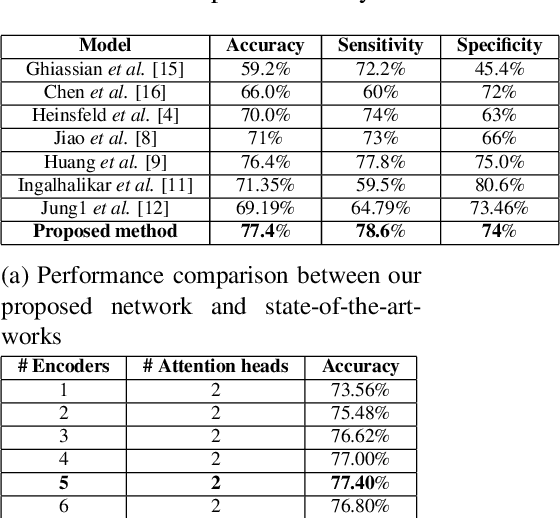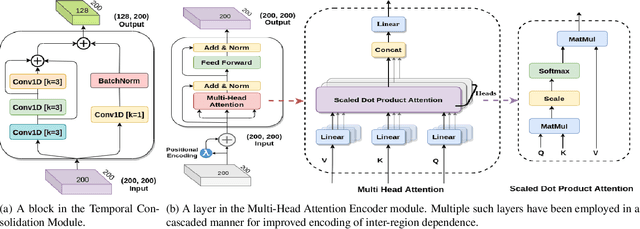MHATC: Autism Spectrum Disorder identification utilizing multi-head attention encoder along with temporal consolidation modules
Paper and Code
Dec 27, 2021



Resting-state fMRI is commonly used for diagnosing Autism Spectrum Disorder (ASD) by using network-based functional connectivity. It has been shown that ASD is associated with brain regions and their inter-connections. However, discriminating based on connectivity patterns among imaging data of the control population and that of ASD patients' brains is a non-trivial task. In order to tackle said classification task, we propose a novel deep learning architecture (MHATC) consisting of multi-head attention and temporal consolidation modules for classifying an individual as a patient of ASD. The devised architecture results from an in-depth analysis of the limitations of current deep neural network solutions for similar applications. Our approach is not only robust but computationally efficient, which can allow its adoption in a variety of other research and clinical settings.
 Add to Chrome
Add to Chrome Add to Firefox
Add to Firefox Add to Edge
Add to Edge